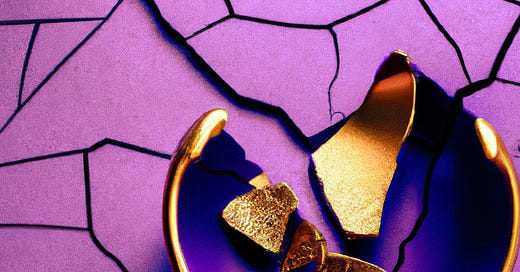2022 ends with the promise of a major societal change, of a new era for artificial intelligence. The success of generative AI, the rise of services such as GPT-3 and DALL-E... Indeed, these tools, which can generate text or images in a few seconds from a prompt, are mind-blowing. So much so that they have become a social phenomenon, almost relegating the trending concepts of 2021, such as NFTs or the metaverse, to the archives. For the record, the metaverse saw its Google queries divided by five between January and November.
As a result, there has never been so much speculation about the great replacement of human beings by machines. Whether it’s imminent danger or ordinary peril, the fact remains that human beings will probably have to develop their "soft skills" — characteristics that are difficult or even impossible to reproduce by AI, such as adaptability, empathy or creativity — to ensure a competitive advantage for the future.
We look toward a future where AIs will continue to smooth out their inaccuracies through the development of techniques such as fairness constraints or algorithmic auditing, a future where AI will undoubtedly come close to perfection, just like human beings, who will be relieved of repetitive tasks and augmented by intelligent assistants. Or not.
Because the counter-trend that has been emerging for several months seems to be anything but perfection. 2022 saw the democratization of the BeReal social network, which aims to emphasize content with a less polished, more natural aesthetic. This phenomenon goes far beyond the boundaries of the application and now feeds new editorial strategies described as "lo-fi", or "low fidelity", i.e., content that assumes a minimalistic production. We have also witnessed a resurgence of the "weird" as "weirdness is a power that dissolves false binaries and celebrates the full spectrum of possibilities" reminds essayist Douglas Rushkoff. And what about the rebirth of "ugliness" as the new fashion statement of a younger generation never short on surprises?
Essayist Paul Vacca even goes so far as to preach the virtues of stupidity. A bit provocative, the columnist advocates the usefulness of supposedly stupid questions, calling them valuable tools for learning, questioning assumptions and fostering innovation. "How many discoveries, inventions or innovations were born irrationally, by accident, by negligence, or even by stupidity? (...) The examples are legion", he points out. Not to mention the growing trend of obfuscation, a practice that consists of "playing dumb" with the algorithm by deliberately generating irrationality and chaos in our clicks and searches in order to make us less readable to the AIs. And in an era where issues around mental health are flourishing, how can we not consider that there is good in stupidity? After all, the cerebrality that intelligence implies opens up to the complexities of life that the famous "happy idiot" is lucky enough to ignore.
This brings us to the common denominator of all these examples: imperfection. Because in the end, it is these inaccuracies and their uniqueness that could constitute the real added value of human beings in the near future. In a future sanitized by AI, it is perhaps not so much our "soft skills" that we will have to cultivate, but rather our "contrarian skills", our contradictions, our authenticity. A bit like the Japanese art of Kintsugi, which consists of repairing an object by mending its cracks with gold, making it as original as it is precious... What if the time has come to enhance our perfect imperfections?
MD





great article, thanks for sharing! a good reminder that we all need authenticity for effective messaging.
Really interesting read, thank you!